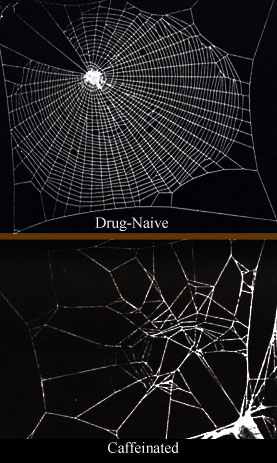Drug-naïve
Drug-naïve refers to individuals who have not been exposed to a particular drug or class of drugs before. This term is widely used in the fields of medicine, pharmacology, and clinical research to describe participants in studies or patients in clinical settings who have not previously used the drug being studied or prescribed. Being drug-naïve can significantly influence the effects of a drug, as there is no tolerance, dependence, or altered metabolism that could modify the drug's efficacy or side effects.
Definition and Importance[edit | edit source]
The concept of being drug-naïve is crucial in understanding how a drug will interact with the body in its most unaltered state. For researchers and clinicians, knowing whether a patient is drug-naïve allows for more accurate predictions about how the drug will perform, including its therapeutic effects and potential adverse reactions. This status is particularly important in clinical trials, where the efficacy and safety of new drugs are assessed. Drug-naïve participants can provide a clearer picture of the drug's effects without the confounding factors introduced by prior exposure.
Factors Influencing Drug-Naïve Status[edit | edit source]
Several factors can influence whether an individual is considered drug-naïve, including:
- Pharmacokinetics and Pharmacodynamics: The body's ability to absorb, distribute, metabolize, and excrete a drug can be altered by previous exposure to that drug or others in the same class, affecting an individual's response to it. - Genetics: Genetic variations can influence how a person responds to a drug, regardless of their drug-naïve status. However, initial exposure can provide baseline data on how these genetic factors interact with the drug. - Age and Health Status: These can affect how a drug is processed in the body. For example, older adults or those with certain health conditions may metabolize drugs more slowly.
Clinical Implications[edit | edit source]
In clinical practice, understanding a patient's drug-naïve status helps healthcare providers make more informed decisions about prescribing medications. It can influence dosing, the choice of medication, and monitoring requirements. For drug-naïve patients, healthcare providers may start with a lower dose to assess tolerance and effectiveness, adjusting as necessary based on the patient's response.
Research Implications[edit | edit source]
In clinical research, selecting drug-naïve participants can be critical for assessing a drug's primary effects without interference from previous drug exposures. Studies often specify whether participants should be drug-naïve and may exclude those who have used the drug in question or related drugs within a certain timeframe.
Ethical Considerations[edit | edit source]
The use of drug-naïve individuals in research raises ethical considerations, particularly regarding informed consent and the potential risks of exposure to new drugs. Participants must be fully informed about their naïve status and the implications for their participation in the study.
Conclusion[edit | edit source]
The concept of being drug-naïve is a fundamental consideration in both clinical and research settings. It plays a crucial role in understanding drug effects, optimizing therapeutic outcomes, and ensuring the safety of new pharmaceuticals. As research continues to advance, the importance of recognizing and managing drug-naïve populations will remain a key factor in the development of effective and safe medications.
Translate: - East Asian
中文,
日本,
한국어,
South Asian
हिन्दी,
தமிழ்,
తెలుగు,
Urdu,
ಕನ್ನಡ,
Southeast Asian
Indonesian,
Vietnamese,
Thai,
မြန်မာဘာသာ,
বাংলা
European
español,
Deutsch,
français,
Greek,
português do Brasil,
polski,
română,
русский,
Nederlands,
norsk,
svenska,
suomi,
Italian
Middle Eastern & African
عربى,
Turkish,
Persian,
Hebrew,
Afrikaans,
isiZulu,
Kiswahili,
Other
Bulgarian,
Hungarian,
Czech,
Swedish,
മലയാളം,
मराठी,
ਪੰਜਾਬੀ,
ગુજરાતી,
Portuguese,
Ukrainian
Navigation: Wellness - Encyclopedia - Health topics - Disease Index - Drugs - World Directory - Gray's Anatomy - Keto diet - Recipes
Search WikiMD
Ad.Tired of being Overweight? Try W8MD's physician weight loss program.
Semaglutide (Ozempic / Wegovy and Tirzepatide (Mounjaro) available.
Advertise on WikiMD
WikiMD is not a substitute for professional medical advice. See full disclaimer.
Credits:Most images are courtesy of Wikimedia commons, and templates Wikipedia, licensed under CC BY SA or similar.
Contributors: Prab R. Tumpati, MD

